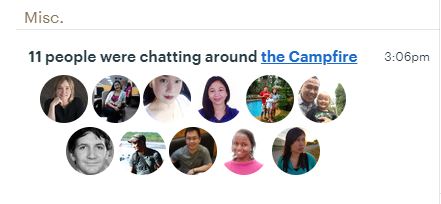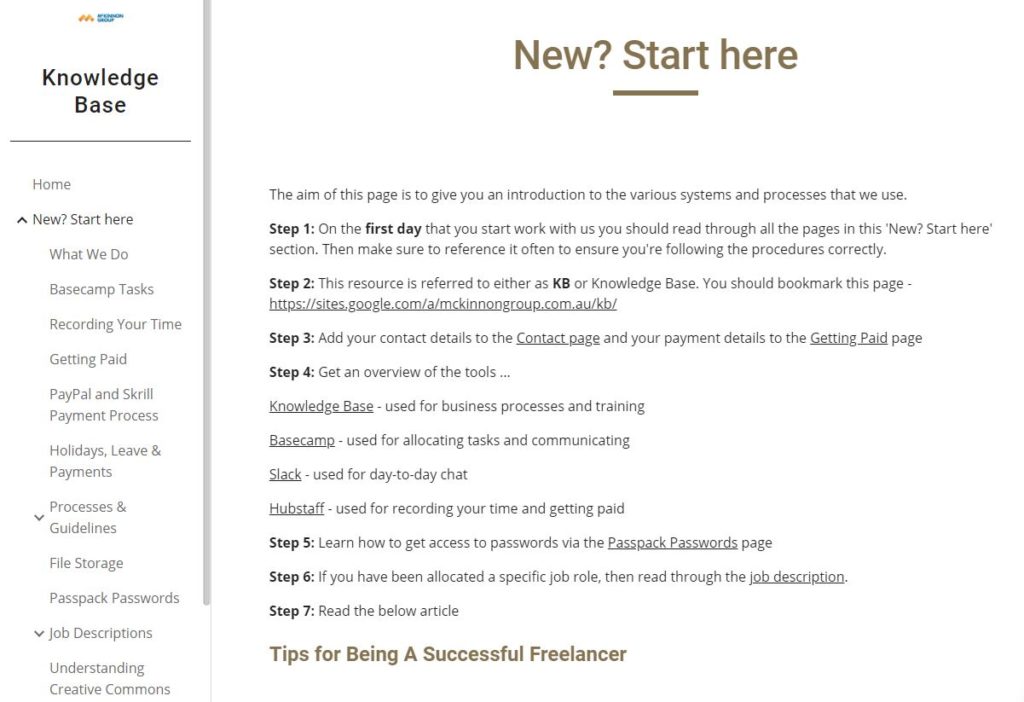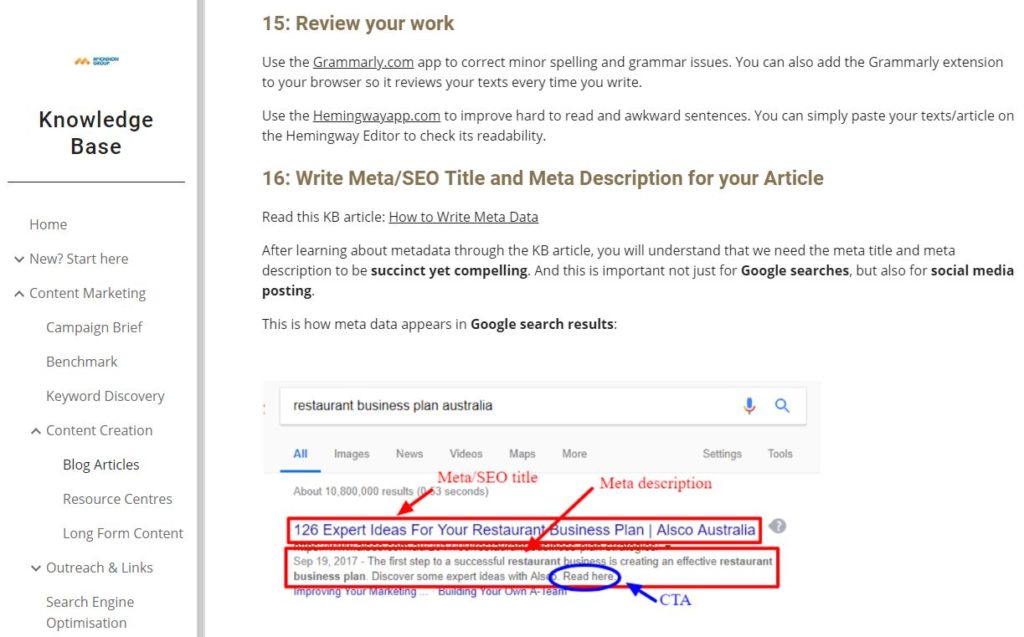Home » B2B » How To Hire Freelance Writers: What Works and What Doesn’t Work

How To Hire Freelance Writers: What Works and What Doesn’t Work
I’ve spent a lot of time trying to hire freelance writers that I can afford to use.
I don’t care if they’re not native English speakers.
Believe it or not, having English as your first language is not necessarily a prerequisite for being good at writing in English.
I work with writers from many countries that don’t have English as their main language.
Serbia, Kenya, The Philippines, for example.
A writer’s a writer.
It’s more about training them to write for the web – for SEO, and how to think visually as well as textually – that matters.
In this post, I’m going to talk about:
- Vetting a writer before you commit to hiring them
- Training them to write for the web and be their own copy editor
- What can go wrong with writers once you’ve hired them
- Alternatives to hiring such as white-labelling or AI copywriting
- Why human creativity is still indispensable
- How to retain talented and reliable content writers
But if I’m honest, my success rate is pretty woeful.
I’ll spend hours trawling Upwork, Freelancer, Fiverr et al to find a handful of potential candidates that I can then vet via a back-and-forth exchange of messages.
I actually find this quite exhausting and usually rely on my business partner Katrina to do it. She’s so much more efficient than me at that sort of thing.
Choose a Random Topic: Ask For a Brief Sample on That Topic
I ask for a few samples of the writer’s work. Often there’s not an in-depth enough piece to give you a real feel for their skill.
And there’s no real way of knowing if they actually wrote it – sometimes they’re just part of a team masquerading as an individual writer.
So I ask them to write a couple of hundred words on a random topic like A place that you went to and how it made you feel, and to send it through the same day.
Just to gauge their authenticity AND ability to tap into their own experience using words.
To see if they can empathise with their reader. Even though they don’t even know them.
If I’m lucky I get back a pretty good original sample.
A heartfelt, engaging, grammatically correct anecdote that gives me a useful insight into that writer’s psyche and writing ability.
And then we offer them a paid trial. And once they pass that test, they’re off and running. On the team. Bloggety blog.
Don’t Just Hire Them: Train Them How to Write Gooder
When we hire freelance writers, we onboard them. Set expectations and hourly rates, weekly commitments and SOPs.
We teach them how to improve existing articles, how to rewrite someone else’s articles, how to curate content from several sources into one new article, and how to write original articles from scratch.
We suggest online training courses they can do to improve their craft and knowledge of things like SEO, topical authority, user intent, earning quality backlinks, writing for infographics, and so on.
We drill them on spellchecking, passing copyscape, running their work through Grammarly and HemingwayApp, word count, writing engaging headlines, readability, tone of voice, inserting mixed media, link sculpting, writing strong calls-to-action, meta data for SEO, captions for social media, document management, time tracking and how to use your team’s workflow management system such as Basecamp.
They churn out post after post.
They become part of the team and share the trials and tribulations of the business and everyone’s lives – albeit virtually via group chat or skype, etc.
The tyranny of distance and different timezones are just two of the many challenges faced by distributed teams. But the exchange of cultures and life experience is also incredibly rewarding.

We’re a social bunch
So What Can Go Wrong With Freelance Writers?
Depends on the individual, of course.
Some burnout. Despite our attempts to set a pace that is sustainable.
They charge in, full steam ahead, 1,500 words on-brief, again and again. But their attention to detail wanes and you end up with quantity over quality. And fixing their work just isn’t viable anymore.
You want to be able to rely on your writers to autonomously produce publish-ready content and hand over to the web dev team to upload to the website.
Web devs aren’t copy editors. The web dev should have everything they need to drop in the draft content:
- Nicely structured copy with short paragraphs and chunks of easily digestible information
- Spell-checked and passed Copyscape for plagiarism
- Links to all relevant image assets, including alt tag text, optimised for SEO
- All metadata, including title, description, focus keyword, and social media snippets
We should only need to do a quick check of the draft – maybe a few minor subedits – before publishing or scheduling.
We don’t want to end up getting bogged down rewriting or having to check every word they write.
That’s simply not getting a good return on our investment.
You can try to counsel and train them to slow down and improve, but sometimes they just aren’t motivated to go to that next level and you lose them back to Upwork or Problogger or whatever.
Sometimes one of your writers can simply vanish. One day they’re there, working away. And then… gone. Without a trace. They don’t respond to email, skype, social media. Nothing. And they don’t even show up on the job sites anymore.
It’s as if they have… died. There’s one writer who I sometimes fear met some sort of tragic fate. He was young, about to get married. Hadn’t been with us long.
Last message I got from him was that he was heading up into the hills where he lived to check out the wedding venue. Seemed happy with life and with work. Said he really appreciated the consistent income as he and his fiancé set about building a life together.
I told him no worries, his jobs could wait a few days and I looked forward to seeing some pics.
That was the last contact. All my messages since then have gone unanswered.
Did he have a car accident? That part of the world is notorious for dangerous road conditions.
Or did he just get married and move on to something else? I’ll never know, I guess.
Other writers can, of course, get poached. Which is ok. If they’re that good, they deserve every chance they get.
All we can do is offer them a competitive remuneration, a good team environment, job variety, ongoing training and support and even additional financial support if they need it.
Some writers suffer from chronic illness and can’t get the healthcare they need. Some change careers or go back to studying.
Some just drop the ball.
What About White Labelling or AI Copywriting?
Of course, we could always get someone else to do it all for us and go the white label option. But quality content via a middleman isn’t going to come cheap.
Artificial Intelligence is now so ubiquitous I can’t escape it – even with something as personal as the written word.
There are even SaaS start-ups out there using AI and machine-learning to try and build the “world’s first all-in-one content marketing suite.”
Which is like humans asking robots to find humans to do the stuff that robots can’t do.
Like write.
Yet.
I stumbled across this AI writer software service (currently in beta) that promises to create original content for you. Without any human oversight.
You simply feed it a headline and off it goes.
Watch that space, I guess.

AI draws on multiple sources and rewrites content
Like any outsourced production overhead, white labelling or AI-augmented automation is quite acceptable if your profit margin remains viable.
But even if we are soon using algorithms to create (most of our) content, for the foreseeable future, I can only imagine that it’s human creativity that will remain the wellspring of quality content that resonates with and engages human audiences.
Despite the advances in AI – AI written copy has supposedly passed the Turing test and successfully imitated a human writer without being detected as a machine – we still (for now, at least) need the human brain to plant the seeds from which AI can grow its own fruit.
Ecommerce platform Alibaba’s digital marketing arm Alimama says,
AI systems will never be able to replace human creativity – but can enable people to focus their major energies towards richly-creative work, and the machines can take over the repetitive, low-value work involved in writing.
So it seems the goal with AI, at least with regards to content marketing, is all about improving efficiency and being able to churn out massive amounts of content fodder.
Alimama went on to say,
AI can take care of a portion of their [merchants’] copywriting needs. And it significantly changes the way [copywriters] work: They will shift from thinking up copy – one line at a time – to choosing the best out of many machine-generated options, largely improving efficiency.
So content production is streamlined, but content marketing strategy remains the domain of human intelligence.
Alibaba’s AI copywriter has already drawn on the retail giant’s massive database of existing copy and can churn out 20,000 (Chinese) words a second, based on that existing content.
But for all its speed, it’s still all just a (technologically impressive) rehash of good ole biological human endeavour.
Alimama agrees.
All the content produced by the AI Copywriter is the result of applying deep learning models, trained with large volumes of quality content created by humans. Human creativity is the cornerstone for the machine, which isn’t able to replace the creativity of people.
Ah, that old chestnut. Creativity.
I’m sorry HAL, I’m afraid you can’t do that.
Even OpenAI’s ‘large-scale unsupervised language model’ borrows human-generated content scraped from the internet.
Or more specifically, juicy outbound links from that quagmire of virtual humanity, Reddit.
OpenAI says,
In order to preserve document quality, we used only pages which have been curated/filtered by humans – specifically, we used outbound links from Reddit which received at least 3 karma.

For now, at least, it seems jokes like the above can only be created – and appreciated – by humans.
Why Human Learning Still Trumps Machine Learning
The future aside, I’m still putting my money on in-house Homo sapiens to create my content.
Despite the challenge of finding and retaining them, our custom trained writers’ ability to consistently, and cost-effectively, craft quality content is what I believe sets them apart from the white label or (current) AI-based alternatives.

This unassuming lump of living tissue still knows how to draw a crowd.
By playing to their relative strengths – like solid technical writing skills or persuasive tone of voice – we allow our writers to excel at their niche topic or topics and to feel empowered enough to bring their personality to their work.
It’s this personality coupled with a nuanced understanding of the client’s business that makes our content uniquely powerful.
Powerful in a way that machines and freelance guns-for-hire would IMO struggle to match.
Good writers may abandon ship when you least expect it, or ask for a pay rise more often than you would like them to, but as long as they understand the cheeky subtext and ephemeral timeliness of “Giant Black Hole Pics”, they’re worth the effort of nurturing.
Perhaps ironically, it’s our human writers’ ability to build a rapport with our clients’ human customers – to build Expertise, Authority and, most importantly, Trust (E-A-T) – that the most powerful machine-based algorithm of all – Google’s search engine – is most hungry for (and recognises as inimitable).
Chew on that.
How Do You Retain Good Content Writers?
Paying your writers a competitive rate and providing them with a friendly, supportive team environment with good training resources is the foundation for a sustainable and productive team.
For us, retaining good talent is about genuinely investing in them and offering them the opportunity to grow:
- to hone their skills in writing for the web,
- to understand the intricacies of SEO,
- to use visual content – and just as importantly,
- to communicate effectively with the rest of the team.
If you don’t look after them, someone else will.
We also maintain a Knowledge Base that covers everything they need to know about working with us.
From onboarding and the fundamentals of content marketing, to specific client content strategies and tactics, the KB, as we collectively call it, serves as the reference library for everyone in our team, including the writers, web developers, analysts, VAs and anyone else we hire.

It’s not perfect – and is always a work-in-progress – but it’s an incredibly efficient way of ensuring every writer has access to all the acquired knowledge we’ve built up over the years, and can benefit from the lessons we’ve learnt as a team.
I’m always chiding myself for not updating the KB with whatever insight I’ve gleaned from a particular project – but that’s life.
Katrina rightly chastises me and points out that it is far more efficient to point the writers to a central knowledge base than spend precious time conducting one-on-one mentoring.
There’s still a place for that, of course, but when you find yourself saying the same thing over and over again, the penny drops.
Nothing is too trivial for the KB. We assume no prior knowledge of all things content marketing or even web copywriting.
It offers a step-by-step guide to producing consistent, high-quality content for a specific audience. Content that provides useful, relevant and engaging information on a given topic determined by the content marketing strategy we are executing.

Our Knowledge Base covers everything our writers need to know about writing for the web.
It also includes a description of the various job roles across the agency so the writers can see who does what and how everyone contributes to the finished product.
This transparency gives our writers a more holistic understanding of the entire content marketing process, how the agency operates and how each team member helps to bring each piece of content to life.
Even now, I still marvel at the collective ingenuity of our team and the beautiful synergy of skills we bring to each and every job.
And I hope that by giving each and every writer the chance to improve their skills while earning money and being part of a supportive and diverse team, they will feel valued and confident their contribution matters.
Several of our team have been with us for many years, having joined Katrina well before I came onboard. Sometimes I’m astounded by the depth of Katrina’s knowledge about their lives – their families and the everyday challenges they face – whether it’s monsoons, earthquakes, health scares, or war.
We haven’t yet managed to get a single team photo – the planet is still big enough to make that an as yet unrealised team goal.
But with patience, hard work and a bit of luck, I hope that one day in the near future we can all come together to celebrate our shared adventures and our love of using stories to connect our clients with their customers.
CopySmiths
I'm Katrina McKinnon, founder of CopySmiths and Small Revolution. In my 20 years of experience, I have helped online businesses create high-performing content specifically on an eCommerce store's blog. Find me on LinkedIn and Twitter.

CopySmiths offers the best blog writing services for online stores.
If you'd like us to write blog articles for you, click here.
Most Recent
- 3 Bold Questions You Should Ask When Hiring A Content Writer

- 5 Practical Reasons You Should Use a Blog Post Template

- 4 Amazing Benefits of Using a Title Generator for New eCommerce Blogs

- 10 Awesome Bio Examples Your Online Store Blog Should Emulate

- 8 Basic Steps to Successful Content Development Every Time

Podcasts
Got a question?
Ask our friendly team about our article writing services.
Subscribe to CopyZine
Monthly, hand-picked stories of the best in eCommerce Content.




